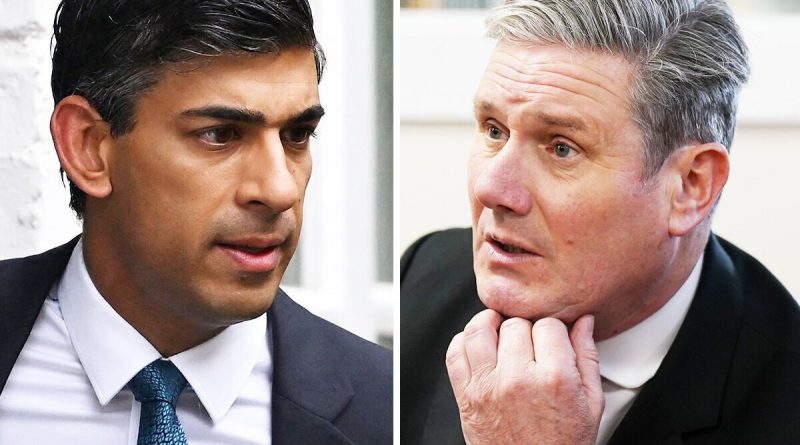Your full local election guide for May 4 vote this year
Rishi Sunak quizzed on whether he’s trusted by Tory party
JUMP TO…
The local elections are set to take place on May 4 offering voters in some parts of the UK their first chance to express their opinion at the ballot box since the removal of Boris Johnson and Liz Truss. The council elections will not be taking place in every area but will provide a significant test for Prime Minister Rishi Sunak and Labour leader Sir Keir Starmer.
Seven in ten voters in England will choose more than 8,000 councillors on 230 councils, with 152 local authorities reselecting every seat.
Labour has been lacking in progress in recent local elections, with Conservatives now having more councillors and control of more councils than any other party.
But the geographical locations of this year’s votes could provide a boost for the left, so this could be Sir Keir’s chance to take hold once again.
Here is your guide to what is happening in the May 2023 local election.

When are the local elections?
The local elections are taking place on May 4 in England. Council elections will then take place in Northern Ireland on May 18.
Polling stations open at 7am and close at 10pm.
Who is voting this May?
There are more than 8,000 council seats in 230 councils up for grabs. Voters in Bedford, Leicester, Mansfield and Middlesbrough also have Mayoral elections.
All 11 councils in Northern Ireland will have elections.
Voters in London, Scotland and Wales do not have elections this year.

Are there local elections in my area and how to find out who the candidates are?
There are council elections in most of England but the best way to find out is to check your local council website.
The Electoral Commission website also has a guide to which councils have elections and you can click on and find out if your is one of the 230 councils involved.
Am I registered to vote?
If you are registered to vote you should have received a polling card if there are elections in your area or a postal vote if you have registered for one of those.
If you believe you are registered to vote but have not received a polling card you should call your local council and ask for democratic services to check.
You can register to vote through the Government website on this link.
Every adult aged 18 and over on the day of the election who is registered at an address in the area is entitled to vote.
In local elections in England this includes British, Irish, EU and qualifying Commonwealth citizens.

What do I need to vote?
For the first time ever in England, voters will need to produce identification when they go to the polling station on election day.
Accepted forms of voter ID include:
- Passport issued by the UK, any of the Channel Islands, the Isle of Man, a British Overseas Territory, an EEA state or a Commonwealth country
- Driving licence issued by the UK, any of the Channel Islands, the Isle of Man, or an EEA state (this includes a provisional driving licence)
- A Blue Badge
- Older Person’s Bus Pass funded by the Government of the United Kingdom
- Disabled Person’s Bus Pass funded by the Government of the United Kingdom
- Oyster 60+ Card funded by the Government of the United Kingdom
- Freedom Pass
- Scottish National Entitlement Card
- 60 and Over Welsh Concessionary Travel Card
- Disabled Person’s Welsh Concessionary Travel Card
- Senior SmartPass issued in Northern Ireland
- Registered Blind SmartPass or Blind Person’s SmartPass issued in Northern Ireland
- War Disablement SmartPass issued in Northern Ireland
- 60+ SmartPass issued in Northern Ireland
- Half Fare SmartPass issued in Northern Ireland
Those who do not have one of these IDs can apply for a special Voter Authority Certificate but the deadline for this passed yesterday on Tuesday April 25.


What is at stake?
The Conservatives who are 13 points behind Labour in the latest polls are defending the most seats with 3,367.
Tory chairman Greg Hands has warned they could lose more than 1,000.
Labour will be hoping to add to their 2,143 while the Lib Dems will be looking for an increase on their 1,225.
There are 954 seats held by independents up for grabs, 240 Greens, and 112 from Residents’ Associations.
This election could spell the end of UKIP’s elected members with the party defending 26 seats.
Richard Tice’s Reform UK will hope for more than their current four seats.
Meanwhile, the Liberals and Yorkshire Party are defending two seats each.
Source: Read Full Article

